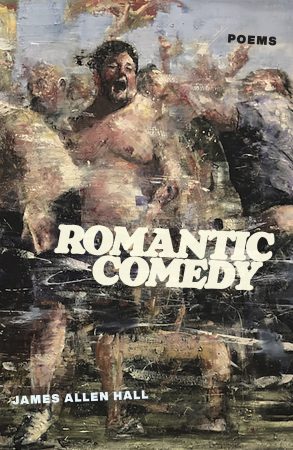It’s just a flimsy mattressin a hookup motel, a nightwhen the moon is a single studin a leather sky. Just a bedsmelling of spilled poppers,until two men enter.Then it’s a story: one layshimself naked, face-down,offering his wrists, anklesto be rope-knotted, the thrillof seeing what exists afterextremity. The movie’s firstimage: a hand floatingin a helpless river, cross-fadinginto a couple of male copsforcing two queer sexworkers, their painted mouths.All sex is a body tryingto tell a story with a handover its mouth. Because thisis erotic crime, what followsare hours of leather bar dancing,the ball-sweat skulkingoff the celluloid, and plentyof interrogation. The killerspreads like a plague—first one nondescript actorplays him, then another,until the undercover copcatches the serial virus, thisbeing 1980, the end of innocentbeds, of innocuous jocks,foam parties, condomlesstrade. As if the director—in conjuring the end of tabooin strobe light, in dim urinals,in park bushes, under thespinning doom of moon—in trying to make us subjecthas subjected us to ravage instead.My friend says I’m dramatic,says you can’t blame artfor epidemiology. Forgive me.I have come here to the river,to the bed, to the foaming edgeof time, to 1980, a year beforethe first reported cases. I havecome with my one good handand all my blood and I will sayanything to save us.
Erotic Crime Thriller
Cruising (1980)
Feature Date
- April 19, 2023
Series
Selected By
Share This Poem
Print This Poem
“Erotic Crime Filler” from Romantic Comedy (c) 2022 by James Allen Hall.
Appears with permission of Four Way Books.
All rights reserved.

James Allen Hall (he/they) is the author most recently of Romantic Comedy (Four Way Books, 2023), selected by Diane Seuss for the Levis Prize. They have received awards from the National Endowment of the Arts, the Lambda Literary Foundation, the Texas Institute of Letters, and the Fellowship of Southern Writers. They are also the author of a book of lyric essays, I Liked You Better Before I Knew You So Well, and a previous collection of poems, Now You’re the Enemy. With Aaron Smith, they are the co-host of Breaking Form: A Podcast of Poetry and Culture. They teach at Washington College, where they direct the Rose O’Neill Literary House.
"In Romantic Comedy’s opening poem, the speaker announces the book’s genesis: 'This story / is mine: there was / a wound, then a world. / It did not mean / me well.' Thus begins a harrowing trek through a life marked by violence and a quest for sensation and connection. There is a retro sheen to these poems, a disco ball fracturing of darkness and light, an AIDS-era aura of intensity fueled by impending extinction. The book is framed by performance, by the language of theater and film, with an array of references to movies which enact the romance of brutality and the brutality of romance, to Cher and Charlie’s Angels, porn and Harlequin romances read 'in the laundry room, / my head propped up on a pillow of unwashed / dresses.' The book is romantic as Keats is romantic — it glimmers with negative capability, the 'used car salesman who, post-coitus, / cleaned himself with his Megadeath concert Tee,' the 'Bad boy who gave me chrysanthemums / and chlamydia,' the private courtyard where 'he kisses me / under a magnolia as fragrant as the one in the garden where I hid / as a boy,' 'the snow / lowering its gentle hammer on the skulls of lovers.' The book is comic in that the hero, against all odds, survives. I am astonished by the range of these poems, that they can theorize creation, 'proving desire, not god, is the father / of man,' and language, 'A pile of sticks bound for the pyre— / it's easy to forget faggot is already plural. / Every plural scissors its singular, / everything pieces back to one…Example: the plural of story is history,' while still giving us a flesh-and-bone guide whose older brother, at Thanksgiving, 'stabs his food / with a bowie knife,' who survives rape, and who has a serious romance with suicide: 'Every gay man inhabiting my students' short stories / crossed out by AIDS or hate crime. Is it any wonder / I have failed to imagine my life won't end / in autopsy?' It’s too late in the day for gloopy hope poems to do me much good, but Romantic Comedy broke me open for its willingness to go there, 'into the subway, where the rats are /…where grit diamond-sparkles in rough light, / down where the understory waits its turn / to be born, invented by fairies, told around a fire, / unfolded, weaved, made up by survivors, / by the likes of you, and me.' Romantic Comedy is a masterpiece of queer self-creation."
—Diane Seuss, Levis Prize judge and winner of the 2022 Pulitzer Prize for Poetry
Poetry Daily Depends on You
With your support, we make reading the best contemporary poetry a treasured daily experience. Consider a contribution today.




